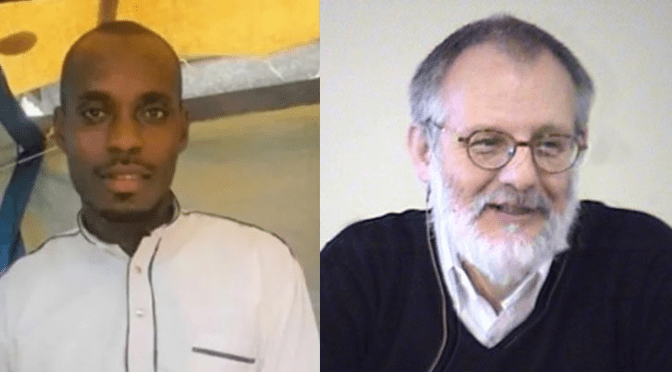French Interior Minister Darmanin and Justice Minister Dupont-Moretti, each in his area of responsibility, are seriously involved in the case of the illegal migrant and murderer of priest Olivier Maire, who set fire to Nantes Cathedral a year ago and was at large. The defense of these two men and their accomplices in the media is twofold: First, the Church has somehow taken the – honorable – risk of harboring the criminal. The second is that everything was in accordance with the law and that it was not possible otherwise. Who would believe this nonsense?
A team of reporters has gone to Saint-Laurent-sur-Sèvres (3,600 inhabitants), where this priest, Olivier Maire, was murdered on Sunday evening. Admirable consensus: All the residents we have met find this reception of illegal criminals gratifying, even if some may have “abused” charity (sic!). We happen to meet a psychologist specializing in the reception of migrants in a street of the village, who gives us a course on the accompaniment of refugees and who regrets the exploitation of the incident by the right and the extreme right, “which flatters our lowest instincts”.
After this kind of “testimony,” Darmanin and Dupont-Moretti can, of course, argue well that the risk associated with this admission was a decision of the victim, reinforced by the state of mind of the villagers, who apparently unanimously rejoiced in the admission of a “refugee” murderer.
But this man was released, although it was known that he was guilty of the fire of the Cathedral of Nantes (he had confessed). Entering France in 2012, suspected of having been involved in the genocide in Rwanda (like his father, who was sentenced to death and executed for his crimes), deportable since 2019, he moved around France at our expense, did not hide at all, had been arrested several times and was released in June. For a man suspected of a crime against humanity and involvement in genocide convicted of arson and who had been in an irregular situation for almost a decade, he enjoyed a strange mildness.
The two ministers argued that the person who could be deported on paper could not in fact be deported, precisely because of the arson attack on Nantes Cathedral, because the court had to wait for the court’s decision. In other words, the criminal illegal immigrant has an advantage over the normal illegal immigrant: he has the right to stay in the country, be released, and receive accommodation and food.
Is it forbidden to reform bad laws?
But does this mean that this law is unchangeable, that it is forbidden to reform bad laws? What are these ministers there for?
“The French state was present at the rendezvous,” he adds. The man was not expelled from French territory because he could not. But then what is the meaning of the term “expulsion” anyway? And in any case, Darmanin does not explain why the murderer was at large despite his confession about the fire of the cathedral.
Burned by his public appearances during the last election campaign, Dupont-Moretti preferred to respond to the criticism with a Facebook message posted on Tuesday: “The last obligation to leave the territory to which the suspect was subject was not enforced […] for the sake of justice” (sic!). Dupont-Moretti then explains in a very cumbersome way that if the criminal “had been deported and thus evaded his trial without having had the certainty that his sentence would be carried out in his country of origin”, he would certainly have been reproached. But a murder later in no way justifies his release on French territory.
Source: Present.fr, By UME


